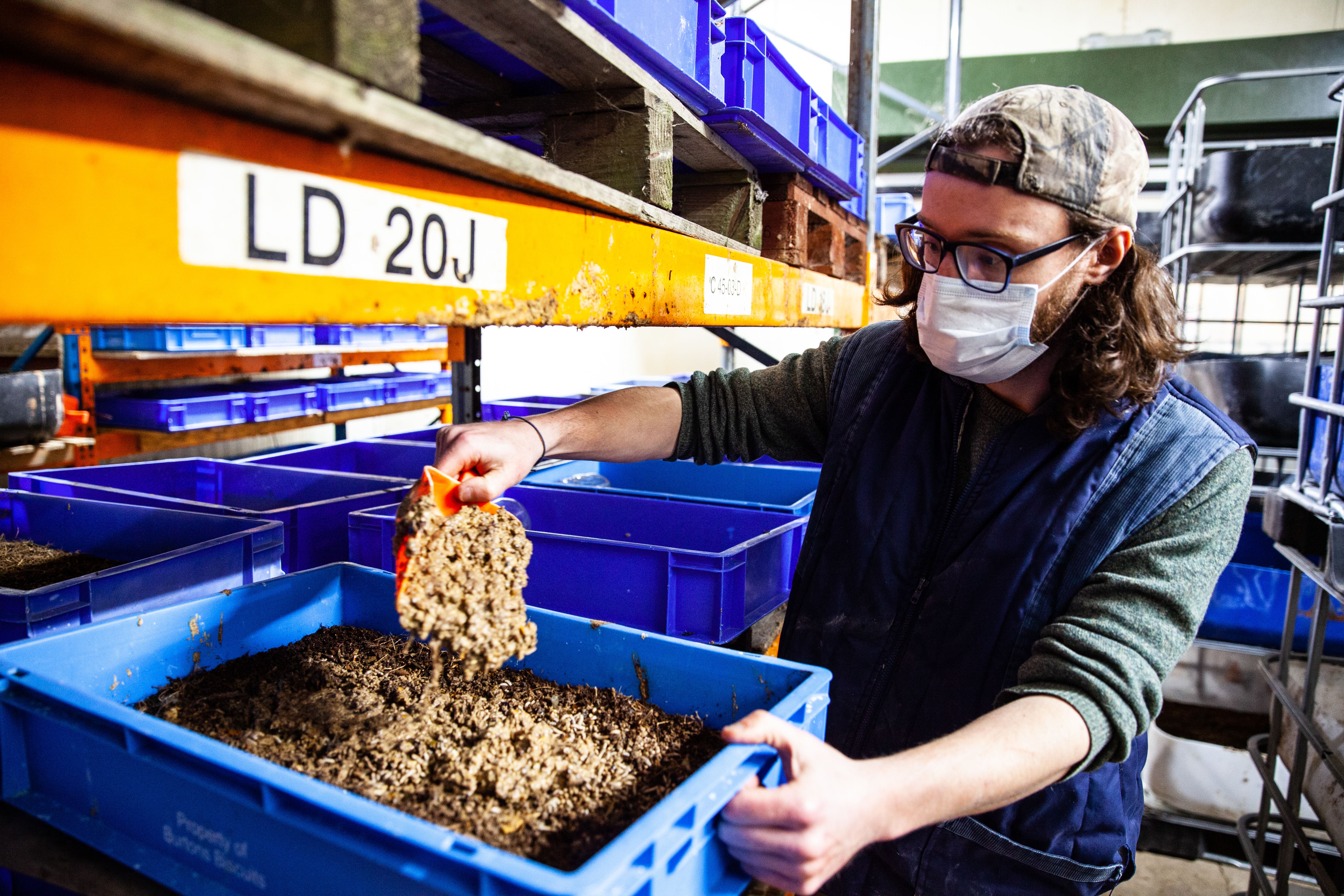Researchers awarded grant to investigate use of edible insects in animal feed
Experts at Scotland’s Rural College will carry out research into the use of the high protein food.

Researchers have been awarded more than £10,000 to investigate using edible insects in animal feed.
With such insects hailed as a source of high protein food, experts at Scotland’s Rural College (SRUC) will look at the possibility of farming them as a potential way of developing sustainable agriculture in Scotland.
The research will bring together insect farmers, feed business operators and policymakers to develop a strategy for farming insects for animal feed, particularly the black soldier fly.
The search for more sustainable methods comes as global demand for livestock products is expected to more than double by 2050.
Policymakers need to take urgent action in order for the insect sector industry to survive in Europe and the UK
Livestock production already accounts for about 18% of global carbon emissions and 70% of all agricultural land use worldwide, SRUC said.
Experts at the SRUC have received the Innovative Knowledge Exchange award of nearly £10,700 for the research, funded by the Sefari (Scottish Environment, Food and Agriculture Research Institutes) Gateway.
As well as leading the animal feed project, researcher Dr Pattanapong Tiwasing is calling for restrictions to be lifted on the sale of whole insects and their ingredients for human consumption in the UK.
The European Commission approved the sale of whole insects and their ingredients subject to specific authorisations in 2018, however, following Brexit, this does not apply in the UK (excluding Northern Ireland) where edible insects are not regulated or approved for sale.
Dr Tiwasing, who is originally from Thailand where eating insects as a snack is commonplace, said: “The introduction of new and developing EU regulations relating to edible insect products have muddied the waters, leading to confusing procedures for those looking to trade and export edible insects.
“This has been particularly impactful following the UK’s exit from the EU because it means there are currently no regulations for the edible insect (for human consumption) industry, and it is therefore illegal to sell insects for human consumption in the UK.
“Policymakers need to take urgent action in order for the insect sector industry to survive in Europe and the UK.”
The academic has called for the Food Standards Agency (FSA) and Food Standards Scotland (FSS) to urgently introduce a new “Great Britain-specific transitional measure” to enable the insect sector to survive in the UK.
FSA and FSS have been asked for comment.
Bookmark popover
Removed from bookmarks